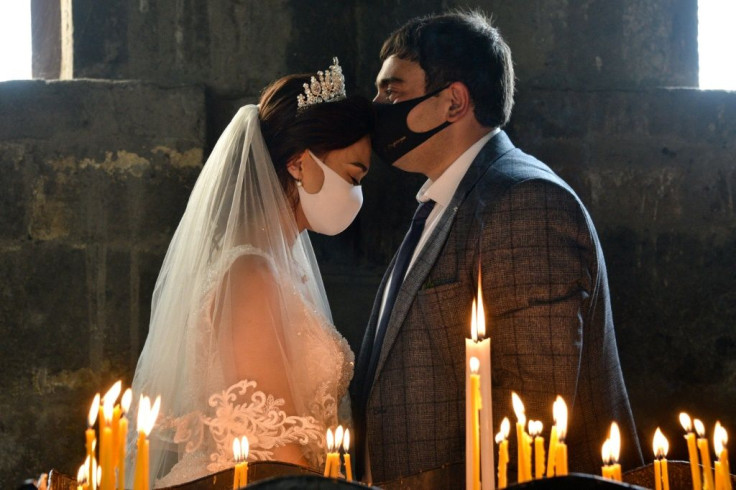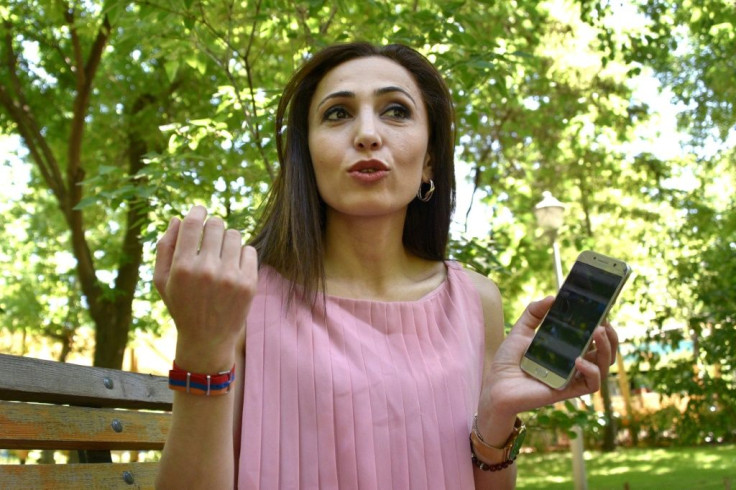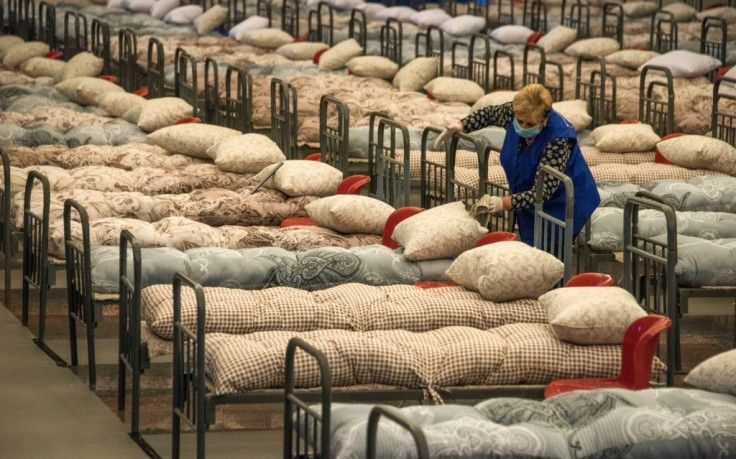Armenia's Virus Battle Crippled By Disinformation
Marina Khachatryan is not the only person in ex-Soviet Armenia who believes the coronavirus is a government conspiracy.
But her large following online means her scepticism has a wide, potentially even dangerous reach.
The unemployed surgeon runs the Facebook page of a local group critical of the government's health policies, where thousands of followers are treated to a regular dose of false claims about the pandemic.

"(The authorities) want to use their own people as experimental animals to test a vaccine," said Khachatryan, who also believes the virus was created in a laboratory.
The Armenian government has come under fire for responding too slowly to the pandemic, which has seen the country's prime minister infected, quarantine rules ignored and hospitals overwhelmed.
But critics also say authorities are failing to stamp out viral disinformation like Khachatryan's posts that fuel the pandemic and undermine lockdown rules.
"Quarantine didn't work in Armenia," virologist Nuneh Bakunts told AFP, because people believed disinformation online and didn't "take the threat seriously."

Claims that the virus is a global conspiracy led by the US business magnate Bill Gates and that 5G telecommunication technology is being used to spread the infection are commonplace in the country.
A recent investigation by the UK-based website openDemocracy found that controversial local news portal Medmedia.am was spreading "incredibly dangerous" virus disinformation.

One article described vaccines currently being developed as "biological weapons" and warned Armenians against participating in vaccination programmes.
The post was viewed at least 131,000 times and had 28,000 Facebook likes -- a huge number for a country of just three million people.
Prime Minister Nikol Pashinyan, who announced on his birthday on June 1 that he had tested positive for the virus, has admitted failings in his government's response to the crisis.

He conceded earlier this month that overwhelmed hospitals can no longer cope with the number of coronavirus patients and that people are dying due to a lack of intensive care beds.
But he has placed blame for widespread quarantine violations on "false rumours that the pandemic is a fiction".
Armenians largely ignored a lockdown to contain the outbreak imposed in late March, with many continuing to gather in public without mandatory face masks.
"Armenian media is full of false information about the coronavirus and that harms our fight against the pandemic," government spokeswoman Mane Gegorgyan told AFP.
Analysts said, however, that the government had also sent mixed messages and unclear guidelines to the public.
"Officials were calling for the wearing of face masks, but didn't wear them themselves until recently," analyst Samvel Martirosyan said.
Adding to that, rights campaigner Zhanna Aleksanyan told AFP that the government's response to false virus news had fallen short, and that it had "only recently engaged in a dialogue with the public about dangerous disinformation."
The Caucasus nation has seen new infections rapidly increase in recent weeks to a total 17,064 with 285 coronavirus deaths, while the situation looks set to further deteriorate.
Pashinyan last week compared the pandemic to "hell" and said the real number of people infected could be as high as 100,000.
Officials have scrapped the idea of reimposing the lockdown they lifted on May 4 citing frequent violations and they have yet to devise a strategy to tackle the disinformation that undermines anti-virus guidelines.
The government "doesn't have a recipe ready against this," said Gegorgyan, the government spokeswoman, referring to false news about the pandemic.
"What we can do is to have an open dialogue with people."
© Copyright AFP 2024. All rights reserved.





















